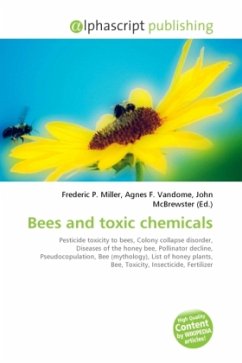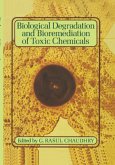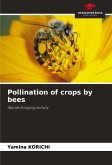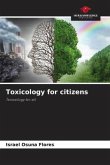Bees can suffer serious effects from toxic chemicals in their environment. This includes various synthetic chemicals, such as insecticides and fertilizers, as well as a variety of naturally-occurring chemicals from plants, such as ethanol resulting from the fermentation of organic material. Bee intoxication can result from exposure to ethanol from fermented nectar, ripe fruits, and manmade and natural chemicals in the environment. The effects of alcohol on bees are sufficiently similar to the effects of alcohol on humans that honey bees have been used as models of human ethanol intoxication. However, the metabolism of bees and humans is sufficiently different that bees can safely collect nectars from plants that contain compounds toxic to humans. The honey produced by bees from these toxic nectars can be poisonous if consumed by humans. Many humans have eaten toxic honey and become quite ill as a result.
Bitte wählen Sie Ihr Anliegen aus.
Rechnungen
Retourenschein anfordern
Bestellstatus
Storno








